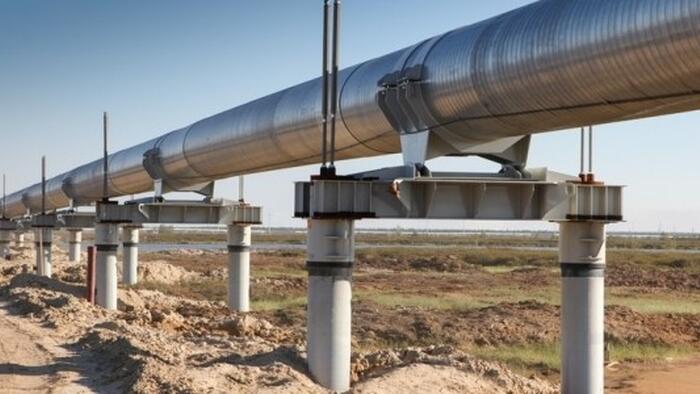


Authored by Cyril Widdershoven via OilPrice.com,
Despite European politicians' efforts to reduce Russia's natural gas dominance in national markets, the reality is quite the opposite. The media often highlights the obstructive policies of Eastern European and Balkan countries like Slovakia and Hungary. However, the bigger picture reveals that Brussels and its bureaucrats face a significant challenge. According to Reuters, Gazprom’s natural gas pipeline supplies via Turkstream to Europe surged 10.3% in May 2025. This increase underscores the growing dependence on Turkstream as the sole option for Russia to transport natural gas to Europe via Turkey, following Ukraine's decision not to extend the transit deal on January 1.
According to Reuters, based on data from Europe’s gas transmission group ENTSOG, Russian exports via Turkstream increased by 4.3 million cubic meters per day, hitting 46 mcm per day in May, compared to 41.7 mcm in April. Y-o-Y, however, the volumes were 1.2 mcm down.
Russia's total supply is far from historic records. During 2018-2019, annual flows to Europe were between 175 and 180 BCM; in 2024, they were just around 32 BCM.
European trade with Russia is still massive, as it entails natural gas or LNG, coal, oil, and uranium. In February 2025, as media articles (Bild) indicated, the European Union purchased more than $2 billion energy-related products from Russia. Experts agree that Russia’s war machine is supported by Moscow’s export revenues, especially as long as China, India, Turkey, and major Arab countries are still very interested in taking Russian volumes. In 2024, Russian LNG exports increased by 4%, hitting around 47.2 BCM. One of the results is that Russia is the EU’s 2nd largest LNG supplier, with an estimated value of €7.3 billion ( $7.96 billion) from these exports. EU Commissioner Dan Jorgensen stated in February 2025 that USLNG and others should substitute Russian supplies. Since the Russian invasion of Ukraine, the EU member countries have imported €209bn of Russian fuels, which is realistically financing the ongoing military onslaught by Putin.
For anti-Russian parties in Europe, and Ukraine’s president Zelensky, help could be coming from an unexpected corner, US President Trump’s MAGA Republicans. In a move to confront Putin’s refusal to end the war with Ukraine, a new bill is being discussed targeting a 500% tariff on countries buying Russian fossil fuels. The latter Senate bill, a bipartisan proposal, including that of leading US Democrats, could support Brussels' move to remove Russian gas from the European markets in an interesting way. For European members, especially the ones still hooked on Russian gas supplies, such as Slovakia and Hungary, the Lindsay Graham (R) and Richard Blumenthal (D) bill will also potentially hit European members. The bills seem to have already secured 81 signatures in the 100-seat Senate. In addition to hitting Moscow’s revenue base, the main underlying threat is secondary tariffs on countries doing business with Moscow. The bill entails a tariff of "not less" than 500% on any country that "knowingly sells, supplies, transfers, or purchases oil, uranium, natural gas, petroleum products, or petrochemical products that originated in the Russian Federation." The tariffs will also be hitting countries that are the main inroads for Russian LNG to European markets, especially the Netherlands, France, Belgium, Spain, and Portugal. Southern European countries, such as Bulgaria, Greece, Italy, Hungary, and others, are on the target lists, as they import Russian gas via Turkstream and crude oil via the Druzhba pipeline. This highlights the urgency for these countries to find alternative energy sources in light of the potential impact of the US tariffs.
European leaders now need to get their act together. The war in Ukraine is a potential game-changer for the security of the European continent and the economic growth potential. Taking out Russian hydrocarbons is a necessity, not only to quell the still-existing reliance on Moscow, but also to push a stronger military position of Ukraine. After this weekend’s surprise drone attack on Russia’s air force and naval assets, Moscow’s answer could be tough, possibly even targeting energy infrastructure linked to Europe. Talking about confronting Russia has been very dysfunctional until now; now, Brussels and European leaders should be blocking Moscow’s revenue base. It will be a significant hit again for natural gas prices in Europe, but it also will force Brussels to set up and implement, for once, additional long-term gas contracts with non-Russian aligned partners.
